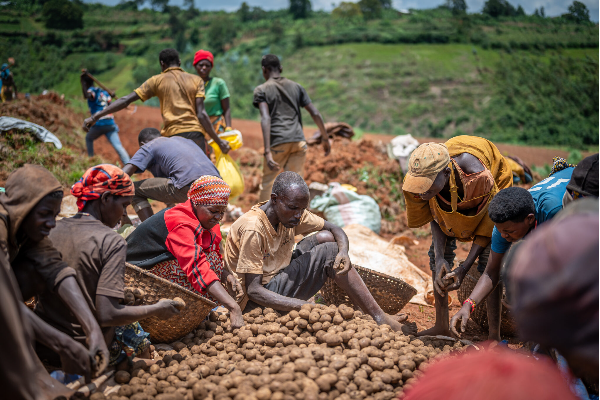The Agriculture Credit Assessment Tool (A-CAT), introduced in Burundi by Cordaid, a global organization focused on value-based emergency relief and development in fragile contexts, is effectively narrowing the significant agri-finance gap for many smallholder farmers in the country.
According to a study released by the National Bank of Burundi in 2019, only 2% of loans from microfinance institutions supported the agricultural sector in the low-income country where 80% of its population is working in agriculture.
In recognising this gap, Cordaid launched the Rural Innovative Finance Development Support Project (PADFIR) to help rural farmers access vital resources, transforming their lives and livelihoods by raising awareness, creating tailored financial products, and partnering with microfinance institutions.
The project then initiated the introduction of agri-finance using the Agriculture Credit Assessment Tool (A-CAT) which is now facilitating financing across the agricultural value chain, ensuring farmers receive the support they need for sustainable growth.
As the project approaches its conclusion, the results are evident: countless farming families have gained financial independence and stability.
One such families is that of Speciose Niyokindi, a mother who once struggled to feed her children.
“Without credit, farming would have been impossible for my husband and me. We didn’t even have land to cultivate. Thanks to the microfinance loan and guidance from agronomists, we now have bountiful harvests and a brighter future,” she told Cordaid.
With their debt nearly repaid, Speciose and her family plan to expand into livestock farming.
Another is of Marc Bancanamwo, with a loan of 1,133 euros, he was able to harvest over 73 tons of potatoes making him one of the recognised seed multiplier in Mwaro province.
“Cordaid connected us with microfinance collaborators who provided funding and technical support,” said Bancanamwo adding that the advice on planting calendars, seasonal best practices, and modern techniques was invaluable.
Key Ingredients for Success
Egide Kamaranyota, who oversees PADFIR’s microfinance initiatives, emphasizes the collaborative effort with 12 microfinance institutions. “Together, we’ve developed financial products tailored to the rural sector. Awareness-raising has been central to our success,” he explains.
The Twitezimbere Financial Institution, one of PADFIR’s key partners, attributes its growth to Cordaid’s support. “Cordaid provided us with training, agricultural finance tools like A-CAT, and resources such as motorbikes and an agronomist to enhance customer outreach and field support,” shares the institution’s director, Egide Nijebariko.
Challenges and Innovations
Despite the progress, significant challenges remain. Many microfinance institutions perceive agriculture as high-risk, particularly with the increasing impacts of climate change. Farmers, on the other hand, are often reluctant to take on credit.
To overcome these barriers, PADFIR has introduced community-based rural microfinance and piloted agricultural micro-insurances, offering farmers much-needed security and fostering confidence in the sector.









